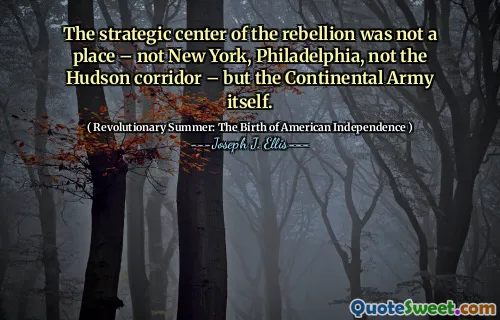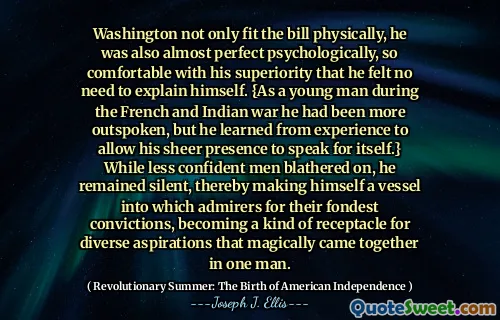
They were trying to orchestrate a revolution, which almost by definition generated a sense of collective trauma that defied any semblance of coherence and control. If we wish to rediscover the psychological context of the major players in Philadelphia, we need to abandon our hindsight omniscience and capture their mentality as they negotiated the unknown.
In "Revolutionary Summer: The Birth of American Independence," Joseph J. Ellis explores the tumultuous period during the American Revolution. He emphasizes that the people involved were navigating uncertainty, creating a shared trauma that made it difficult to maintain clarity or control over unfolding events. This chaos was inherent in their efforts to orchestrate a revolutionary movement that would change the course of history.
Ellis urges readers to approach the historical actors without modern hindsight, advocating for a deeper understanding of their thoughts and emotions. By examining their mindset in the face of the unknown, we can better appreciate the complexities and challenges they encountered as they worked toward independence, ultimately shaping the nation’s future.










